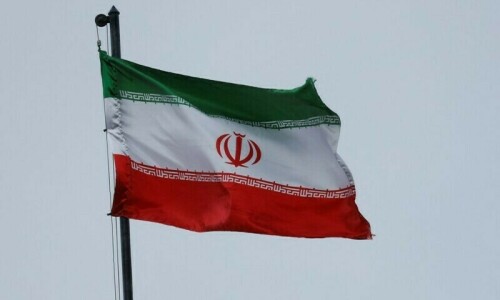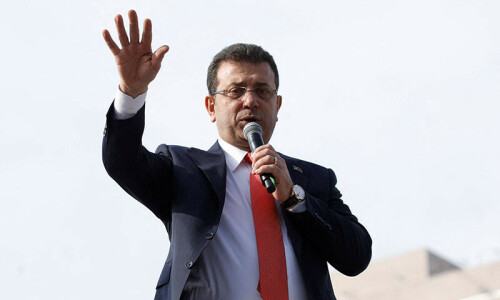NEW DELHI: India’s ruling Bharatiya Janata Party (BJP) has almost swept the regional elections in three northern states, according to the results announced on Sunday.
As Rajasthan, Madhya Pradesh, Chhattisgarh and Telangana, went to polls last month, the BJP dislodged Congress governments in Rajasthan and Chhattisgarh and consolidated its hold on Madhya Pradesh — the state it has ruled for 18 of the last 20 years. After eviction from Rajasthan and Chhattisgarh, Congress is now in power in only one northern state — Himachal Pradesh.
The party, however, made a crucial gain by defeating a regional party in Telangana to win the important southern state, a relic from the former empire of the Nizam of Hyderabad. It now controls two southern states, the other being Karnataka.
This result aligned with the historical trend of BJP struggling to find a toehold in southern India.
Opposition alliance INDIA calls meeting after ‘humbling’ defeats
As it stands, the BJP is poised to win 115 seats in the 200-strong Rajasthan assembly, leaving the Congress trailing at 68. In Chhattisgarh, the BJP was eyeing 55 of the 90 seats, with Congress settling for 35. The difference is wider in Madhya Pradesh, with the BJP securing 164 members in a 230-member house against 65 for the Congress.
The resounding defeat in the vote-rich north has spurred Congress to go back to the drawing boards as a humbled ally in the newly minted INDIA opposition group — a coalition of 26 parties.
The party has called a meeting of the largely secular opposition alliance in New Delhi on Wednesday. Congress president Mallikarjun Kharge sent out the invitation as results from the four states trickled in.
Congress’ inability to exploit the usual anti-incumbency against the BJP’s three-term rule in Madhya Pradesh should, by most accounts, deflate any hopes it might have of asserting a leadership role as a given in the opposition alliance as it braces for the general elections in 20224.
Close contests
The breakdown of vote percentage shows the Congress remains, in sheer reach, a behemoth that straddles all Indian states ahead of the BJP.
In realistic terms, for the Congress, the vote difference of 3 to 4 per cent in Rajasthan and Chhattisgarh may not pose an insurmountable challenge if it puts up a united fight against Prime Minister Narendra Modi’s third successive bid for office next year.
The Madhya Pradesh vote difference of around 8pc — 48.73pc for BJP and 40.45pc for Congress — could be slightly trickier to bridge.
However, even though the BJP secured a comprehensive victory in the three northern states, the vote margin between the BJP and Congress is narrow.
In Rajasthan, as per the Election Commission website, the BJP’s vote share is 41.78pc against Congress’ 39.52pc.
The vote share in Chhattisgarh shows that Congress couldn’t be fully dismissed in the predominantly tribal state. The BJP secured 46.35pc of votes, a difference of just over 4pc compared to Congress’ 42.13pc votes.
Secularist cohesion
A likely cement among the parties could be the broad secular outlook of the opposition groups. The alliance has seen even a robustly right-wing party like the Shiv Sena moving to the political centre vis à vis BJP’s communalism.
A small swing prompted by a cohesive alliance could easily neutralise the BJP’s advantage. But would there be cohesion, though?
The members of the INDIA alliance are disparate in terms of caste representation. Bihar Chief Minister Nitish Kumar and West Bengal Chief Minister Mamata Banerjee hold the key to any united vision together with powerful regional parties from Punjab, Maharashtra, Tamil Nadu and Kerala, all vote-rich states where the Congress doesn’t call the shots currently, but has pockets of influence.
A worrying problem could be from within Congress’ ranks. Its units in Chhattisgarh and Madhya Pradesh ran a campaign that was a tinctured version of Hindutva, replete with promises to build statues of Hindu deities and taking credit for the Ayodhya temple, due to be inaugurated in January.
While Prime Minister Narendra Modi credited the party’s victory to the “ordinary people”, Congress’ Rahul Gandhi accepted the verdict “with humility”.
Published in Dawn, December 4th, 2023
















































